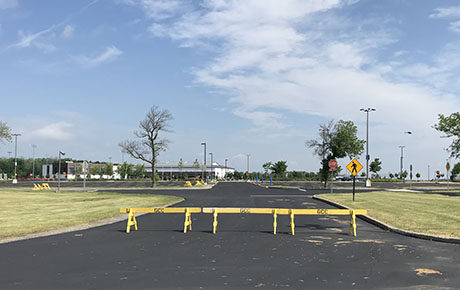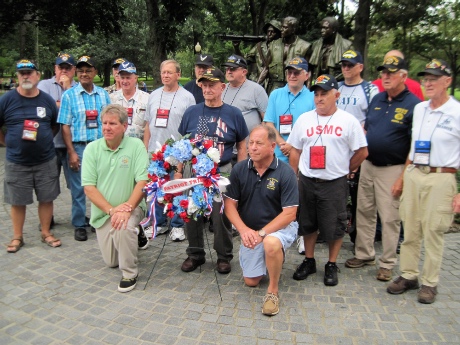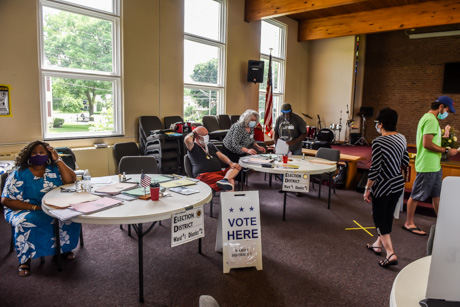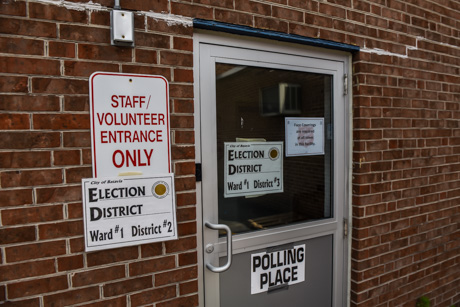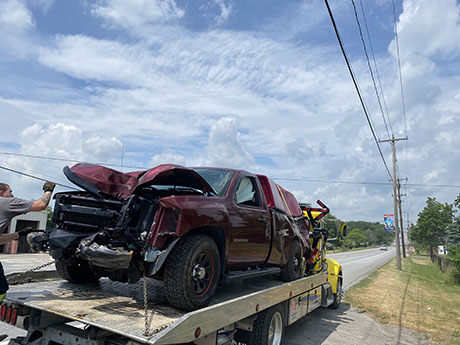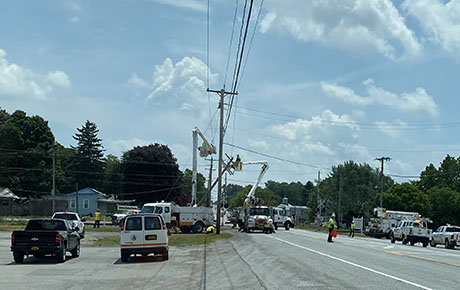In Election Day voting, Jacobs trounces competition with tens of thousands of absentee ballots yet to be counted
In walk-in voting on Election Day in Genesee County, Chris Jacobs far outpolled his opponents in the special election race to fill the vacant NY-27 race, getting 4,536 votes in the unofficial tally to 1,565 for Nate McMurray and 155 for Duane Whitmer.
Jacobs has declared victory in the NY-27 race and McMurray has said that with far more absentee ballots to be counted than were cast on election day it's premature to say who won and who lost the race.
In the GOP primary for the same seat, Jacobs received 2,473 votes from Genesee County residents to 1,099 for Darien resident Beth Parlato and 340 votes for Stefan Mychajliw.
Districtwide, the Buffalo News reports that Jacobs garnered 70 percent of the walk-in votes to 28 percent for McMurray and has a 30,639 vote lead with 65,509 absentee ballots to be counted.
That count could take a week or more but the Jacobs campaign contends it is mathematically impossible for McMurray to close the gap.
In the GOP primary, Jacobs currently has 25,668 votes to 8,644 for Parlato and 7,190 votes for Mychajliw.
Jacobs, McMurray, and Mychajliw have all issued statements about the election results. We've not received a statement yet from Parlato nor Whitmer.
Jacobs:
Chris Jacobs has declared victory in the Special and Republican Primary for New York’s 27th Congressional District and is releasing the following statement:
“We did it, it has been a long, challenging and ever-changing election, nevertheless the people of Western New York made their voices heard overwhelmingly for strong, conservative leadership! With the commanding lead I have amassed; I am confident in declaring victory in both the Special and Primary elections.
"Now I am looking forward to getting to Congress and getting right to work fighting alongside our great President for the people of Western New York. I would like to thank all the volunteers, supporters, party leaders, and elected officials who have worked so hard to make this happen, and I would especially like to thank President Trump for his early and consistent support throughout this entire election, I am deeply grateful.”
McMurray:
Tonight, with thousands of ballots left unopened across the 27th Congressional District, millionaire Chris Jacobs declared a premature victory. As a result of the COVID-19 pandemic, a historic number of absentee and mail-in ballots still need to be counted. Absentee counting in most counties will not start until July 1st, and likely won't be completed for at least two weeks.
“How can you declare victory before the ballots are counted?” Nate McMurray said on Tuesday night. “There are more ballots still out there, uncounted, than people that voted in-person today. As we have always said, we will fight for every single vote. Chris always wanted to be crowned. The coronation will have to wait. They had to bring the whole Trump family into this to help drag him across the finish line. He can peacock. We will talk in two weeks.”
Mychajliw:
Congressional candidate Stefan I. Mychajliw Jr. released the following statement on the New York 27th Congressional District election results:
“I called Chris Jacobs a few minutes ago to congratulate him on his victory in the Republican Primary. I’m thankful for the support I’ve received in this race. We said it was important to let voters decide, and they have. While not victorious, I’m proud of the race we ran. We stayed above the fray, and ran a positive campaign on the issues. I’m a loyal Republican – always have been, always will be. Just like I have in the past, I will work hard to keep NY-27 in Republican hands in November."
UPDATE: Statement from Parlato:
"I got in this race to give every voter in NY-27 a choice, and that is exactly what we did. Although not victorious, I am grateful for each and every vote, prayer and supporter. We ran a tough campaign, and I’m proud of all that were involved. I look forward to campaigning for President Trump as we fight harder than ever to protect our freedoms and conservative values."

